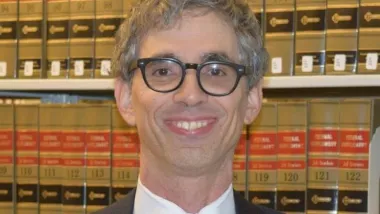President Trump's election might not be a disaster for local transit.

The most recent version of Streetsblog (a news site focusing on transportation issues) was full of bad news for transit users, proclaiming that the Trump Administration “is expected to severely cut funding for Amtrak, transit and high-speed rail unless Democrats somehow manage to take back the House” and that “Donald Trump's victory is a blow against transit, traffic safety and urbanism in general.”
But Republicans had complete control of government for part of President Trump's first term in 2017 and 2018, and somehow managed to avoid destroying public transit. Moreover, there is one reason why Congressional Republicans might actually be less hostile to transit than they were seven years ago.
In the 2016 election, the nation was sharply polarized along urban/rural lines. For example, Trump won most rural counties in New York but received less than 10 percent of the vote in the Bronx and Manhattan, less than 20 percent of the vote in Brooklyn, and only 22 percent of the vote in Queens. By contrast, in 2024 urban voters swung right. Even in Manhattan, Trump got 17 percent of the vote, nearly double his 2016 share. Trump's vote share rose to 27 percent in Brooklyn and 37 percent in Queens.
Trump made more modest gains in other transit-oriented cities and counties between 2016 and 2024. In Philadelphia, his share rose from 15 percent to 20 percent. In Cook County, Illinois (which includes Chicago) his share rose from 20 percent to 29 percent. In Suffolk County, Massachusetts (which includes Boston) his vote share appears to have risen from 16 percent to 23 percent. Even in San Francisco, Trump's vote share rose from 9 percent to 15 percent. Republican gains showed up in non-Presidential races as well: for example, so far Republican Senate candidate David McCormick has gotten about 18 percent of Philadelphia votes, while his 2018 counterpart Lou Barletta got only 12 percent.
Why does this matter? Because politicians listen to their voters, and if a higher percentage of Republican voters are transit users, this should (other things being equal) lead to more transit-friendly Republican politicians.
Of course, I realize not everything else is equal. Who becomes Secretary of Transportation, who chairs relevant committees, and the future Trump administration's general attitude toward the size of government will matter. My sense is that generally, Trump has favored spending-heavy, debt-friendly “big government conservatism” over more libertarian conservatism. But that attitude might not be reflected in what lower-level political appointees do, and might change over time.

Planetizen Federal Action Tracker
A weekly monitor of how Trump’s orders and actions are impacting planners and planning in America.

Chicago’s Ghost Rails
Just beneath the surface of the modern city lie the remnants of its expansive early 20th-century streetcar system.

Amtrak Cutting Jobs, Funding to High-Speed Rail
The agency plans to cut 10 percent of its workforce and has confirmed it will not fund new high-speed rail projects.

Ohio Forces Data Centers to Prepay for Power
Utilities are calling on states to hold data center operators responsible for new energy demands to prevent leaving consumers on the hook for their bills.

MARTA CEO Steps Down Amid Citizenship Concerns
MARTA’s board announced Thursday that its chief, who is from Canada, is resigning due to questions about his immigration status.

Silicon Valley ‘Bike Superhighway’ Awarded $14M State Grant
A Caltrans grant brings the 10-mile Central Bikeway project connecting Santa Clara and East San Jose closer to fruition.
Urban Design for Planners 1: Software Tools
This six-course series explores essential urban design concepts using open source software and equips planners with the tools they need to participate fully in the urban design process.
Planning for Universal Design
Learn the tools for implementing Universal Design in planning regulations.
Caltrans
City of Fort Worth
Mpact (founded as Rail~Volution)
City of Camden Redevelopment Agency
City of Astoria
City of Portland
City of Laramie






























